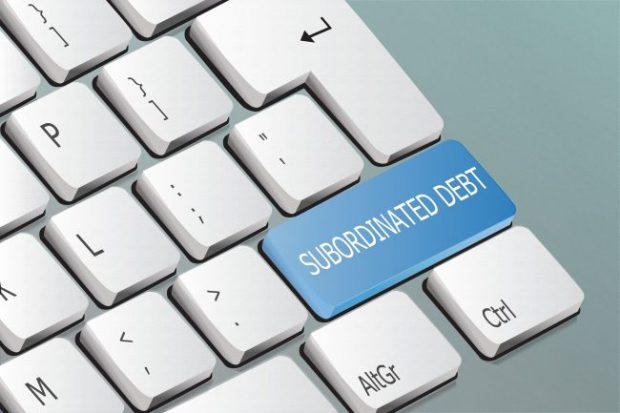 Credit/AdobeStock.
Credit/AdobeStock.
Idaho Central Credit Union is bolstering its net worth through $80 million in subordinated debt issued Nov. 7.
The Luse Gorman law firm of Washington, D.C., which served as legal counsel to Idaho Central in the offering, said the private placement of $80.0 million of subordinated notes was "one of the largest single issuances of subordinated debt by a credit union."
Recommended For You
It follows a $100 million issue announced in February by GreenState Credit Union of North Liberty, Iowa ($11.2 billion in assets, 447,703 members as of Sept. 30) to support minority homeownership.
Idaho Central's $10.3 billion in assets as of June 30 ranked it as the nation's 21st largest credit union. As of Sept. 30, the Chubbuck-based credit union had $10.7 billion in assets and 597,973 members.
A news release from Luse Gorman said the subordinated notes are intended to qualify as subordinated debt under NCUA rules, which means they are considered regulatory capital that adds to the credit union's net worth ratio and risk-based capital ratio.
Luse Gorman said NCUA rules that went into effect in January 2022 have expanded credit union access to regulatory capital by permitting credit unions with at least $500 million in assets and new credit unions to issue subordinated debt. Low-income designated credit unions, regardless of their asset size, are also permitted to issue subordinated debt.
NCUA data showed Idaho Central's net worth ratio was 7.70% on June 30, compared with 10.90% for all credit unions and 10.80% for credit unions with more than $4 billion in assets.
If the $80 million in subordinated debt had been issued Sept. 30, it would have increased Idaho Central's net worth ratio to 8.45%.
An Oct. 18 report from the Kroll Bond Rating Agency (KBRA) of New York said Idaho Central's net worth ratio is lower than its peers, "hovering near 8% since 2018," the report said.
"Going forward, the expectation is that ICCU will build capital levels corresponding with their consistent earnings base and the effective management of (risk-weighted asset) growth," the report said.
KBRA's other key credit considerations included:
- Its asset quality has been "consistent with manageable levels" of non-performing assets and net charge-offs. Net charge-offs "traditionally hover near 10 bps to 40 bps, slightly above many commercially oriented banks. Furthermore, NCOs peaked at 44 bps in 2019 and have averaged nearly 27 bps since 2018."
- Its "solid levels of non-interest income," which averaged 45% of total revenue since 2018 and historically has been bolstered by mortgage banking and deposit servicing income. KBRA said it expects non-interest income to fall to 25% of total revenues as residential loans as originations fall from their peak levels of 2020 and 2021.
- Its available liquidity, which was nearly $2.2 billion as of June 30, representing nearly 20% of total assets. "ICCU has ample access to liquidity and has not experienced material deposit outflows in recent periods, dissimilar to many regional credit union and banking counterparts," KBRA said.
- Its "higher than peer reliance on noncore funding sources" through the Federal Home Loan Bank and brokered deposits. Its cost of total funding was nearly 2.15% during the second quarter, compared with about 1.30% in 2019.
- Its higher deposit costs have been a drag on earnings. Annualized return on average assets was 0.90% in this year's first half, down from a range of 1.34% to 1.96% for the years 2018 through 2022.
"Although there is a dependence on non-core funding, ICCU has the ability to monetize elements of the asset size of their balance sheet via ABS securitizations, assuming market appetite. This would allow for reduced risk-weighting and potentially free up higher-cost borrowings," KBRA said.
GreenState said its private placement was for fixed-to-floating rate social subordinated notes due 2033. The notes initially bear interest at a fixed annual rate of 7.75% for the first five years before resetting quarterly.
GreenState said its notes were issued to support the credit union's Minority Homeownership Initiative, designed to close Iowa's racial homeownership gap.
Idaho Central did not disclose the terms of its notes or its purpose.
KBRA assigned an investment grade rating of BBB- to both the GreenState and Idaho Central unsecured notes.
© Touchpoint Markets, All Rights Reserved. Request academic re-use from www.copyright.com. All other uses, submit a request to [email protected]. For more inforrmation visit Asset & Logo Licensing.







